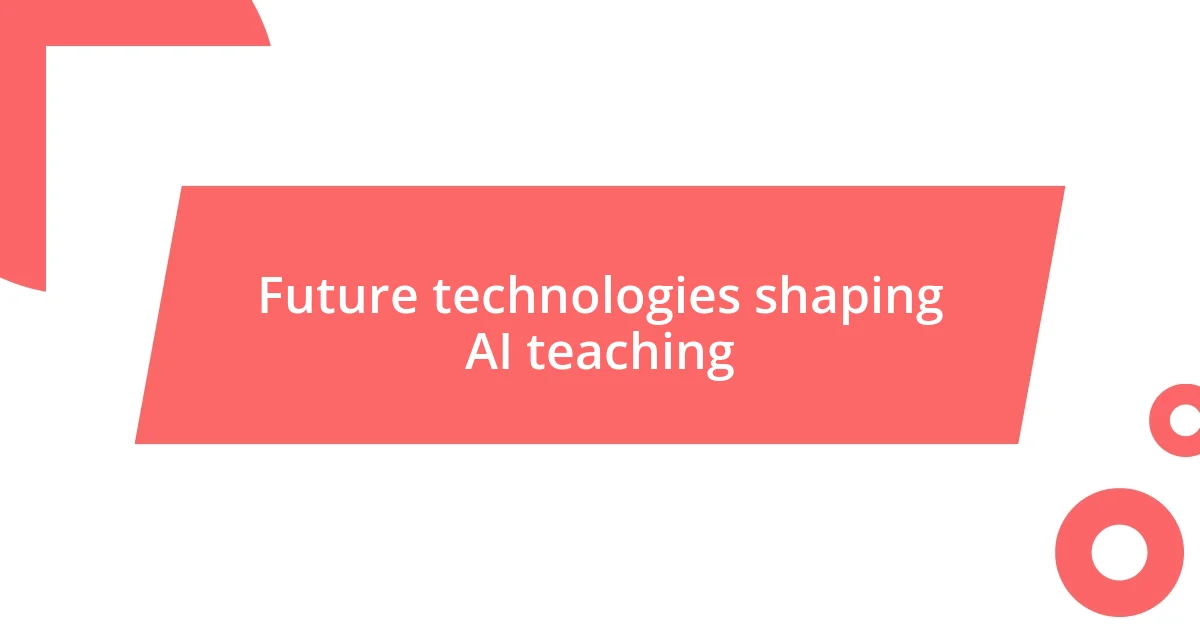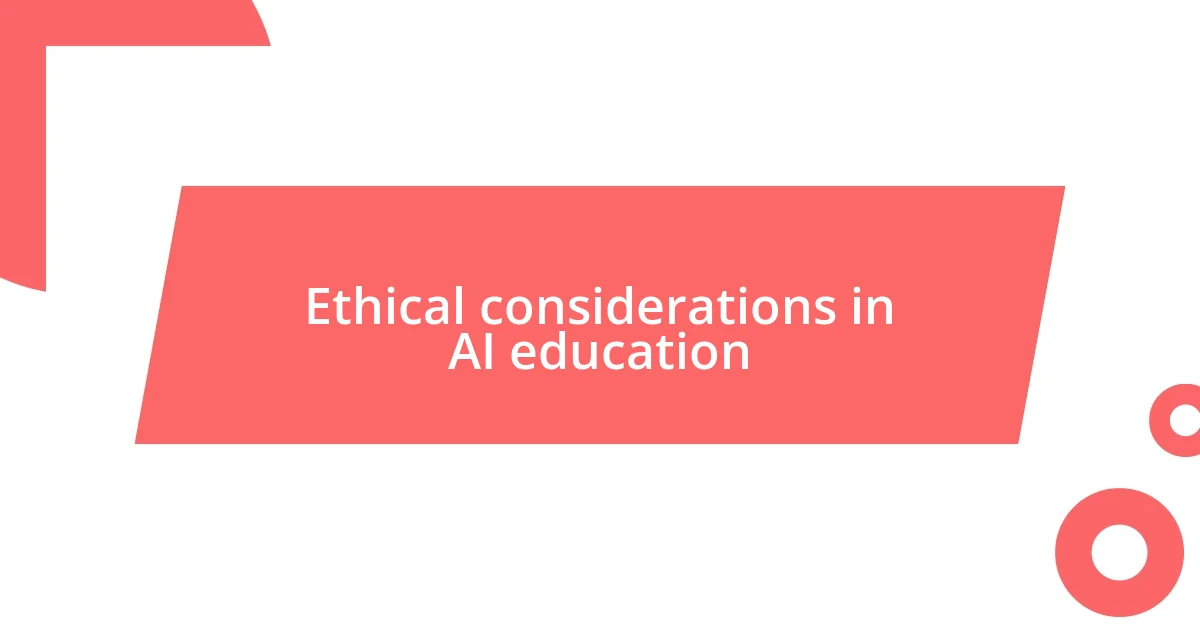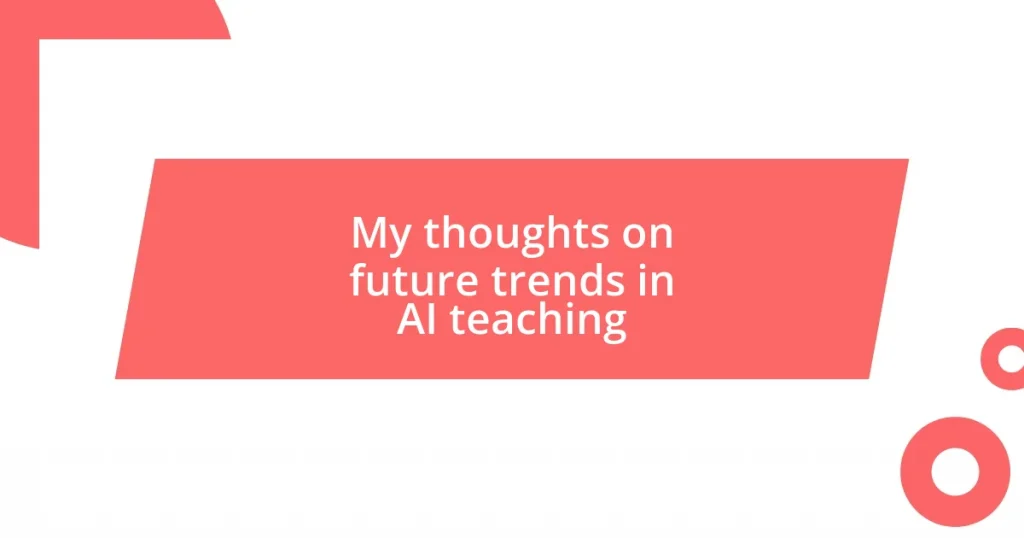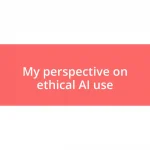Key takeaways:
- Adaptive learning platforms personalize education by adjusting content to individual student progress, enhancing engagement and effectiveness.
- Integration of VR/AR technologies offers immersive learning experiences that can ignite student interest beyond traditional methods.
- Ethical considerations include data privacy, algorithmic bias in AI tools, and the irreplaceable role of human teachers in an AI-driven educational landscape.

Future technologies shaping AI teaching
One exciting technology that is shaping the future of AI teaching is adaptive learning platforms. I remember the first time I encountered a system that adjusted its content based on a student’s progress; it felt like the program truly understood their unique learning journey. Don’t you think that personalized learning experiences could transform education, making it more engaging and effective?
Moreover, the integration of virtual and augmented reality (VR/AR) in education holds immense potential. Just imagine stepping into a history lesson where you can walk through ancient civilizations or experience simulations of complex scientific concepts firsthand. I can’t help but wonder how immersive environments like these could ignite a passion for learning that traditional methods sometimes fail to spark.
Lastly, AI-powered chatbots are increasingly becoming integral in the learning process. I’ve seen firsthand how they can provide instant feedback and support to students, which can be a game-changer for those who might hesitate to ask questions in a classroom setting. Isn’t it fascinating how these digital assistants can empower students and create a more responsive learning atmosphere?

Ethical considerations in AI education
When we consider ethical considerations in AI education, one of the first thoughts that come to my mind is data privacy. Imagine a classroom where every interaction is monitored and analyzed by AI systems. While this can enhance learning, it also raises significant concerns about how student information is used and who has access to it. Have we ever stopped to fully contemplate the implications of this data collection on students’ right to privacy?
Additionally, there’s the risk of algorithmic bias in AI-driven educational tools. I’ve often found myself reflecting on instances where technology unintentionally perpetuates stereotypes or reinforces inequalities. For example, if an AI system is trained on data that lacks diversity, it may not serve all students equitably. Isn’t it crucial for educators and developers to actively work against these biases to create a fair learning environment for everyone?
Finally, the role of teachers in an AI-enhanced educational landscape deserves our attention. Although I believe AI can be a fantastic supplement, it can never replace the human element in teaching. Personal connections and emotional support are irreplaceable, so how do we ensure that technology serves as a tool to empower teachers rather than as a substitute? Maintaining this balance will be key in fostering an ethical approach to AI in education.















